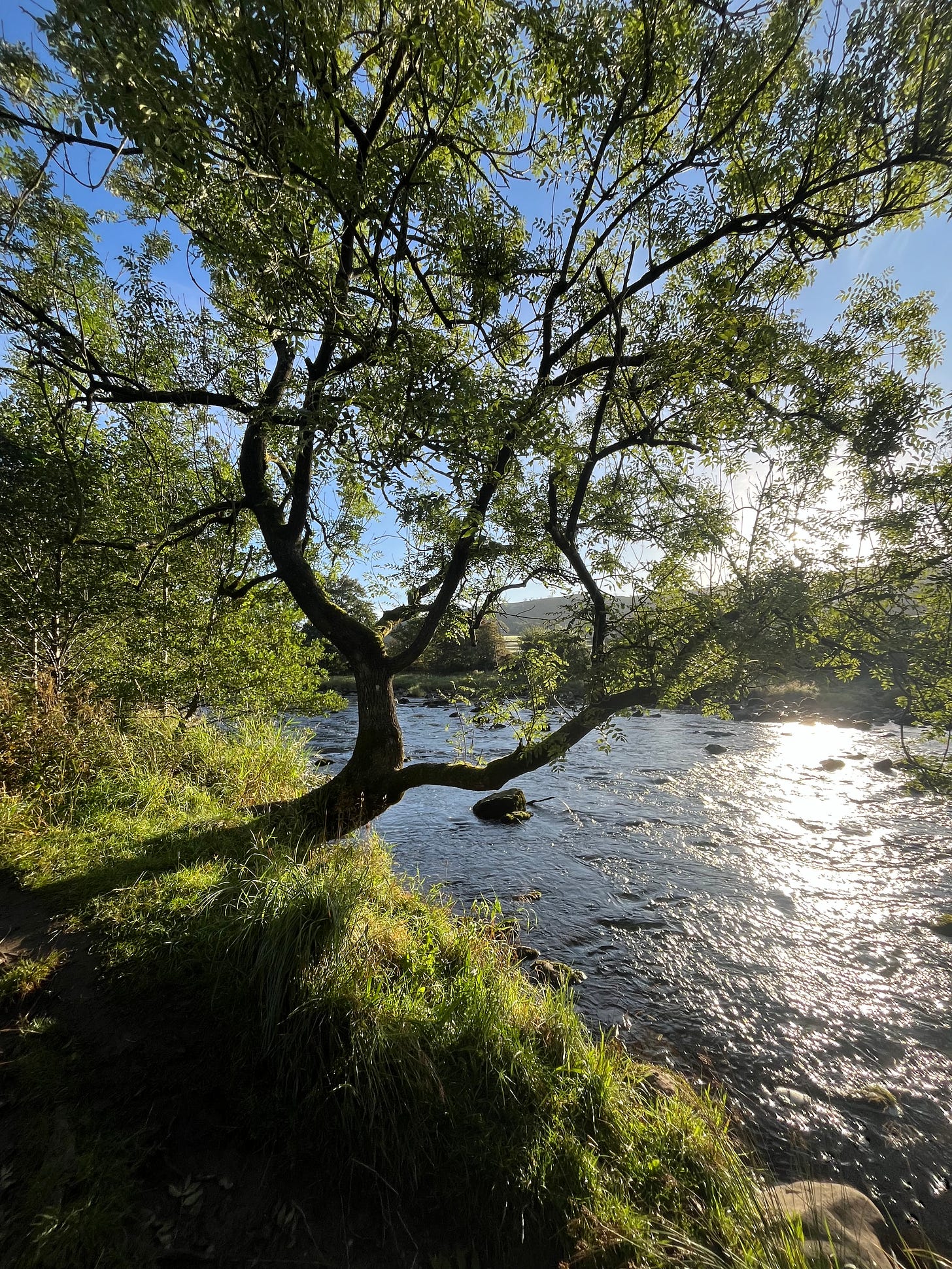Out of water, I often feel stagnant if stayed put for too long. It is September, and I’m on a train to Settle, North Yorkshire, a place that sits just North of where I was born. The higher we travel, the more my accent starts to bow in different places. I find myself reaching for a part of my childhood when my American twang temporarily fell away to a Yorkshire one. As I approach the ticket inspector, I wonder how much of belonging is performance, and also, fear of being judged.
It never left my dad though, even after 40 plus years living away. Wherever he went the same coaster sat on his desk, “Tha can tek t'man out o' Yorkshire, but tha can't tek Yorkshire out o' t'man”. This distinctive accent and dialect, sometimes known as Yorkshire English, Broad Yorkshire, Tyke, or Yorkie, is, according to one study, at risk of dying out. The accent's distinctive features, such as the dropped "T's" and "H's," and the specific vowel sounds, are a hallmark of its identity.
My accent is in fact, a little harder to place. Most assume an Americanness or, by a second stretch, Canadian when I divulge that I am in part French. I joke frequently that perhaps these are “my people”, a habit I’ve come to realise is about making other people feel comfortable about their inaccuracy and unease. Another question, more silent, is asked in the gaps. It is curious how much people need to locate you before moving on with getting to know you.
Walking out of the station, I’m met with the hospitality that Yorkshire is known for, smiling faces and greetings of ‘hiya’ as we cross paths. Every time we’ve moved, we have taken memories and words from each place. This greeting has stayed in my vocabulary across the decades, a nod towards my ancestors who lived on land close to here. The surname Tunnacliffe is rooted to a place called Tonacliffe in Lancashire, North West Yorkshire, where the family name was first referenced in 1246 when Henry Tunwaleclif held estates in the parish of Rochdale. The name derives from the Old English words tun (farmstead), wella (spring or stream), and clif (cliff or bank). While this name ends with me, my father’s queer kid that has shed all of their names from birth, there is water here too. From the spring in my birth name, to my chosen name, when sé is often pronounced sea. What is a name but flow, from stream to ocean.
I am drawn to the way words sometimes sound like another but differ in meaning or spelling. Hiya is a close homophone for aiya. In my wife’s Cantonese-speaking home, aiya is used to denote surprise and shock, disappointment, exasperation or to complain. Versatile in use, it is a word that now exists between our own home lexicon. It is a joy to have them both exist together.
After a few days in Settle, I am desperate to find water. It is a bright, golden morning, and I run along a single track to find a waterfall a friend has vaguely pointed out. I am trying to listen out for my instinct more, nurture this gut feeling who’se one priority is to keep me grounded, safe. I stop at a tree which dips and I touch the cold, brown water. I instinctively raise fingers to forehead. I give thanks to my queer and trans ancestors who forged the road ahead of me to become an ancestor for others in the future. Another dip, and I touch my chin. I give thanks to my blood family for bringing me into existence. And a final dip, to heart. I give thanks to my chosen ones for loving me into being.



Family dictionary of melded words
I love this so much ❤️❤️❤️❤️